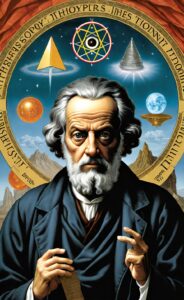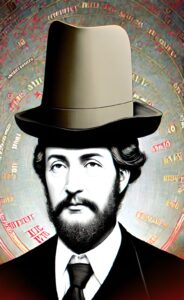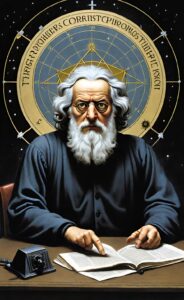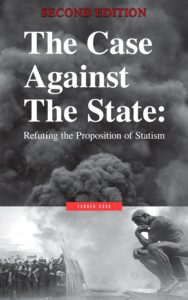In the grand tapestry of thought and understanding, we find philosophers and conspiracy theorists intricately woven. The two fields, though vastly different in approach, share a common theme of questioning reality, a thirst for the truth, and a power of perception. With their never-ending search for the ultimate truth and a sense of skepticism about what is generally accepted, one might argue that conspiracy theorists are modern-day philosophers.
Exploring the Similarities: Philosophy and Conspiracy Theories
The domain of philosophy and the realm of conspiracy theories might seem unrelated at first glance, but when delved into, they reveal fascinating parallels. Philosophy, with roots deep in ancient history, aims to decipher the basic nature of knowledge, reality, and existence. On the other hand, conspiracy theories, usually with a contemporary flair, revolve around the idea of unseen, clandestine plots governing events and societal interactions.
What binds these two domains together is their shared propensity to invite a reevaluation of the conventional norms and question our entrenched beliefs. Both necessitate the presence of a questioning mind, an innate curiosity, and an unyielding desire to delve beyond the apparent and probe the hidden depths of reality.
The fulcrum around which philosophy and conspiracy theories revolve is skepticism, questioning, and a need to see beyond what is readily available. This shared perspective makes for an intriguing bridge between the age-old practice of philosophy and the contemporary world of conspiracy theories.
Questioning Mind: Philosophers and Conspiracy Theorists
The legacy of Socrates, one of history’s most influential philosophers, endures in his teachings about the importance of perpetual inquiry. His doctrine posits that a life unquestioned is one devoid of worth. Conspiracy theorists share a strikingly similar sentiment. They harbor a skepticism towards widely accepted narratives and display an insatiable desire to challenge them. Refusing to accept things at face value, they actively seek out hidden agendas or ulterior motives embedded in significant occurrences or phenomena.
Much like Socrates prompted his students to delve into the essence of life, conspiracy theorists attempt to unravel the intricacies of the realm around them. By rejecting the simplicity of surface-level interpretations, they engage in an ongoing investigation of the underlying layers of our reality. This shared proclivity for questioning, a pivotal characteristic of both philosophers and conspiracy theorists, underscores the notion that truth isn’t merely an object of acceptance but an outcome of relentless pursuit.
Unmasking Reality: Philosophy and Conspiracy Theories
At its heart, philosophy seeks to demystify existence by peeling away layers of perception to comprehend the authentic essence of things. Conspiracy theorists also embark on a similar quest, aiming to reveal an alternate reality obscured by public narratives. They contend that beneath the surface of widely accepted stories, a clandestine plot operates, subtly influencing events and actions.
Whether the suspected puppeteers are governmental bodies or shadowy secret societies, conspiracy theorists strive to expose what they suspect to be the genuine manipulators of our reality. This endeavor resonates with the philosophical goal to seek truth beyond the visible, forming another link between these two seemingly disparate pursuits.
The task of unmasking reality, as seen through the lens of both philosophy and conspiracy theories, involves questioning the status quo, challenging established perceptions, and not succumbing to surface-level understanding. This shared pursuit for unraveling hidden truths in their respective domains illustrates the kinship between philosophers and conspiracy theorists in their drive to decode the mysteries of existence. Their shared passion for unearthing the veiled aspects of reality underscores their mutual commitment to challenging prevailing narratives in their relentless pursuit of truth.
Pursuit of Truth: Philosophy and Conspiracy Theories
For centuries, philosophers have valued truth above all. They have consistently endeavored to uncover reality beneath the layers of subjective experiences and societal constructs. Renowned minds like Socrates, Descartes, and Kant, dedicated their lives to this unwavering quest for truth. This timeless commitment is shared by today’s conspiracy theorists, though their pursuit frequently clashes with mainstream narratives and established beliefs. Their truth, they argue, is a hidden reality veiled beneath the presented ‘facts’ by authoritative entities, and it often holds a darker and more complex connotation than what is generally accepted.
Thus, while philosophy seeks truth by peeling back the layers of existence to find its core, conspiracy theories challenge the so-called ‘truths’ put forth by governments or institutions, suggesting an alternative reality that is deliberately kept from public view. Regardless of their contrasting paths, their ultimate aim remains the same, to understand the realm as it truly is, not as it appears to be or as it is depicted to us. This shared dedication to unmasking the true nature of existence further underlines the kinship between philosophy and conspiracy theories.



Power of Perception: Philosophy and Conspiracy Theories
The element of perception holds a prominent position in both the world of philosophy and the realm of conspiracy theories. Philosophers such as Berkeley have emphasized that our reality is intrinsically tied to our perception of the world. His assertion implies that our understanding of existence is shaped by how we perceive and interpret our surroundings and experiences.
Conversely, conspiracy theorists often posit that our perceptions are not entirely our own but are manipulated or influenced by more powerful entities. They believe that these entities, be they governments or secretive organizations, exert control over public perception to preserve a certain order or to execute hidden agendas. This highlights their contention that our understanding of reality may be tainted or skewed by external forces beyond our immediate control or comprehension.
Hence, both these fields underscore the critical role perception plays in our grasp of the world and our understanding of reality. This recognition of the profound influence of perception binds philosophy and conspiracy theories together in a unique intersection of thought, providing another intriguing point of comparison between these two distinct disciplines.
Reality Check: Conspiracy Theorists are Modern Philosophers
Having evaluated the many parallels, it’s feasible to consider conspiracy theorists as the contemporary counterparts to traditional philosophers. While their methods and areas of interest may diverge, they are united by a fundamental essence, a deep-rooted skepticism of established truths and an unyielding drive to unearth what they perceive as the actual reality.
Just as philosophers have for centuries challenged prevailing beliefs and delved deep into understanding the essence of existence, conspiracy theorists today scrutinize widely accepted narratives and propose alternative realities. They mirror the philosopher’s quest for truth, albeit in a more modern and contextually relevant way.
This shared ethos of critical inquiry and dogged pursuit of unveiling the hidden layers of reality undeniably establishes conspiracy theorists as the modern philosophers of our time. Their work continues the age-old philosophical tradition of questioning, exploring, and comprehending the realm beyond its surface-level appearance.




